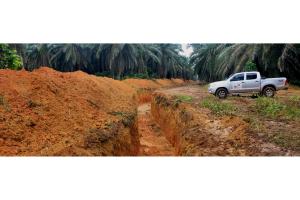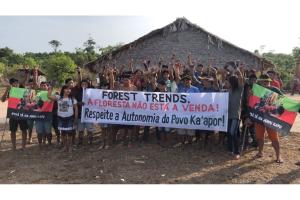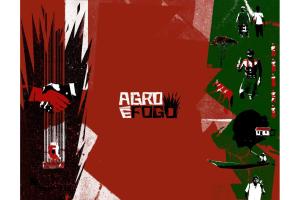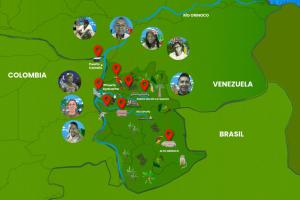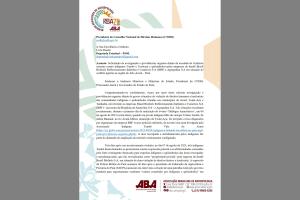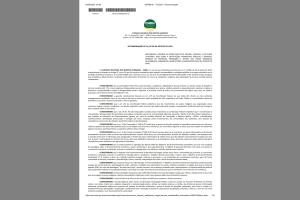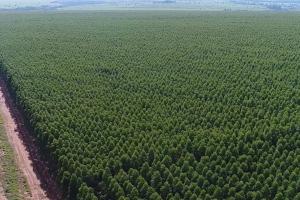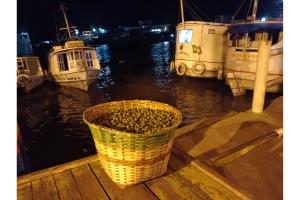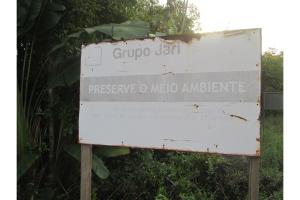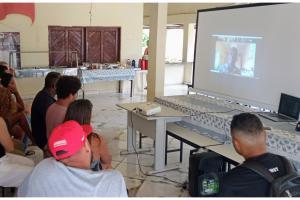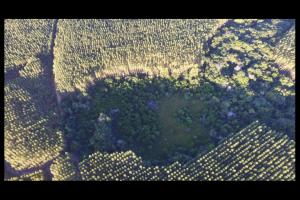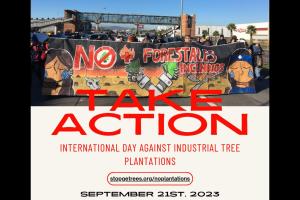In the Acará Valley, Pará state, the Tembé and Turiwara indigenous peoples, and quilombola and peasant communities are fighting to take back part of the living spaces they traditionally occupied. It is not just a struggle for territory, but one to reverse a history of oppression and injustice. Today, they are denouncing structural violence and state omission.
Brazil
Bulletin articles
26 February 2024
Bulletin articles
26 February 2024
The Ka'apor live in Alto Turiaçu, in the northwestern part of Maranhão state in Brazil. It is the largest indigenous territory of the Eastern Amazon and the largest portion of preserved rainforest in the region. Foreign companies have arrived there to propose REDD projects; this has caused conflict, and part of the community is rejecting these projects and organizing to resist.
Other information
26 February 2024
The Brazilian Coalition Agro é Fogo is made up of social movements and organizations that have worked for decades to defend the Amazon, Cerrado, and Pantanal regions, and the rights of their Peoples and communities.
Other information
26 February 2024
The production of audio-visual tools, videos and podcasts in the Amazon, where Indigenous Peoples talk about their realities and resistance struggles, is increasing.
Articles
24 February 2024
Between August 4 and 7, 2023, there were violent attacks on the lives of four indigenous Tembé people as a consequence of the struggle to take back territories from the hands of the company Brasil BioFuels (BBF). In the face of this, the Brazilian Anthropological Association (ABA) sent a formal letter to the authorities requesting the immediate regularization of indigenous and quilombola territories, as well as an investigation into the mechanisms of criminalization of their leaders and the suspension of all incentives to companies involved in the violence.
Articles
24 February 2024
On August 8, 2023, the National Human Rights Council (CNDH) sent a recommendation to federal and state authorities regarding measures to protect, promote and defend indigenous peoples and quilombola, riverine, peasant and agro-extractivist populations in Pará state.
Bulletin articles
19 December 2023
In the past two years, tree plantation initiatives aimed at generating carbon credits have doubled. Whether as large monocultures or as nicely sounding projects with grassroots communities, tree plantations for carbon offsetting are neither a solution to the climate chaos nor beneficial to rural communities in the Global South.
Bulletin articles
19 December 2023
Carbon offsetting projects jeopardise small-scale farming, the felling of trees for subsistence, and other centuries-old practices of Indigenous Peoples and traditional communities in the Amazon region. Contracts promoted by companies undermine local care strategies and workers’ creativity, undervaluing or even denying them completely.
Bulletin articles
25 October 2023
WRM’s reply to Biofílica Ambipar’s “Clarification Note” about the article "REDD and the Green Economy exacerbate oppression and deforestation in Pará, Brazil", written by WRM and published in its Bulletin of July 2023.
Bulletin articles
25 October 2023
Exchanges between activists put the voices of those who fight to defend their territories at the center of the conversation. In September, members of communities from Brazil and Mozambique united their struggles and connected their histories once again, helping to strengthen solidarity in the fight against industrial tree plantations.
Other information
25 October 2023
The network released an open letter in which it denounces the impacts of the plantations and the crimes committed by the companies. At the same time, they demand reparation and reaffirm resistance against tree monocultures.
Action alerts
21 September 2023
Sign the letter in support of Indigenous and local communities devastated by the social and ecological impacts of industrial tree plantations, and threatened by the planned future use of GMO tree plantations.
